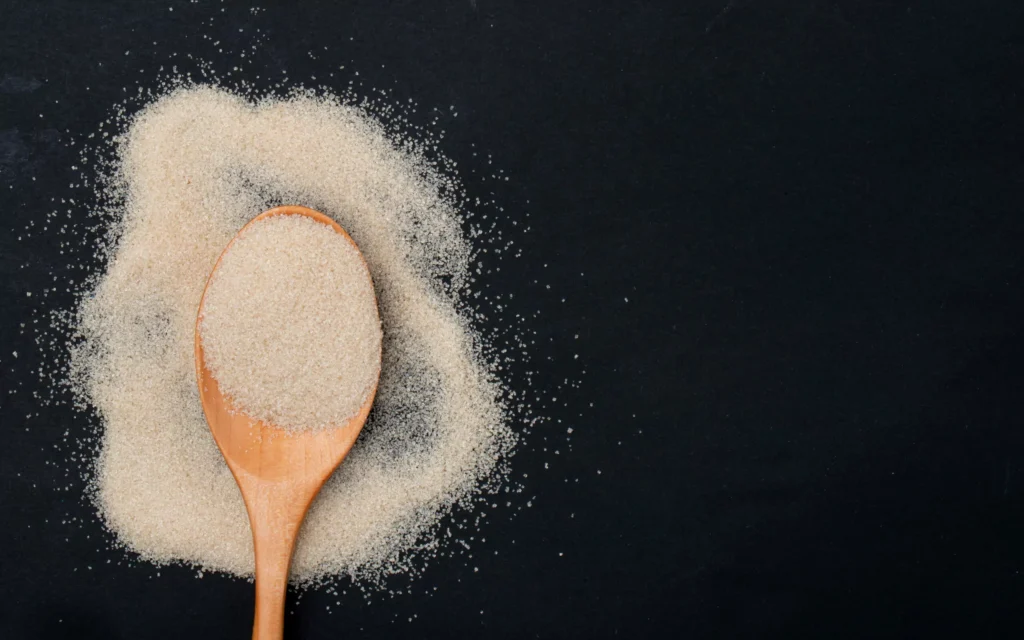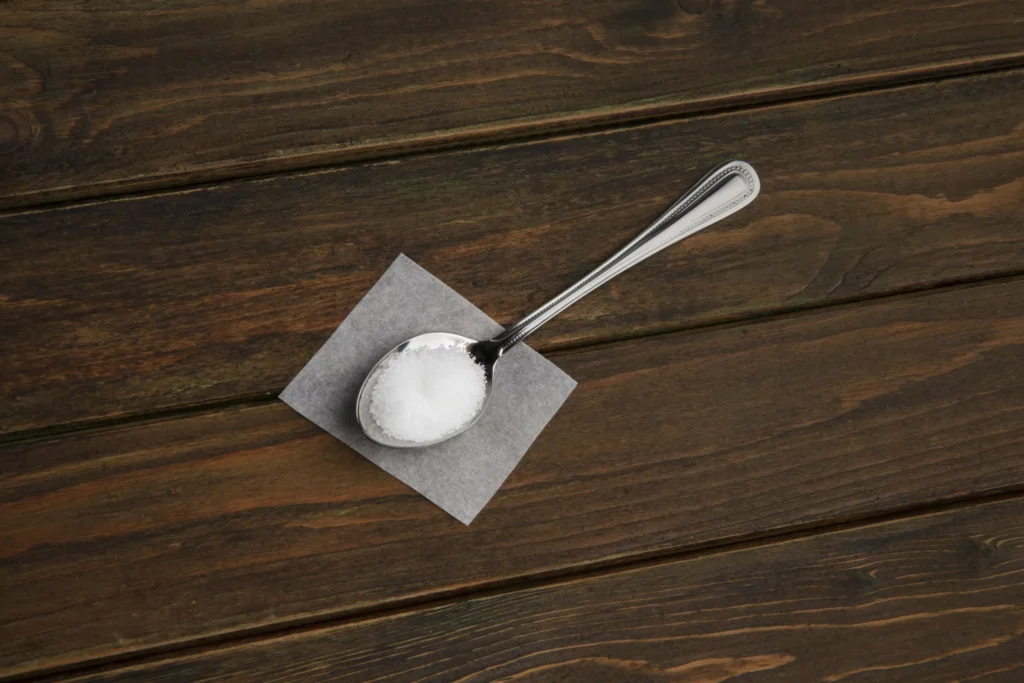Hello, Rare Suga fans. In today’s health-conscious world, breaking free from sugar addiction is not just a personal victory; it’s a necessary step toward improved well-being.
As many strive to escape the sweet clutches of sugar, a rising star named Allulose offers a promising alternative.
This article delves into what Allulose is, how it works, and why it might be the key to a successful sugar detox.

What is Allulose?
Allulose is a rare sugar naturally found in small quantities in fruits like figs, raisins, and jackfruit. Chemically, it’s very similar to fructose, the sugar found in fruit, but it behaves differently in the body.
What makes Allulose particularly intriguing is its sweet taste—approximately 70% as sweet as sucrose (table sugar)—combined with a minimal calorie count. Unlike regular sugar, Allulose has only about 10% of the calories.
Allulose’s rarity in nature contributes to its novelty in the food industry, where it’s now being synthesized for broader consumption. Its discovery as a natural component in certain fruits has opened doors to its acceptance as a safe sugar substitute, which is now recognized by various health authorities, including the FDA.

The Science Behind Allulose
The body metabolizes Allulose differently than it does other sugars. While it offers the sweet taste sugar addicts crave, it doesn’t raise blood sugar or insulin levels significantly. This unique trait makes it an ideal option for those looking to reduce their sugar intake without sacrificing sweetness.
From a biochemical perspective, Allulose is absorbed by the body but not metabolized, allowing it to provide sweet flavor without the calories.
Studies have shown that Allulose has a negligible impact on blood glucose and insulin levels, a stark contrast to the effects of regular sugar. This makes it a particularly attractive option for managing diabetes and obesity, as well as for the general population looking to maintain a healthier lifestyle.
Integrating Allulose into a sugar detox plan can ease the transition away from high-calorie sugars. When cutting sugar from your diet, you might experience withdrawal symptoms like headaches, cravings, and mood swings.
Allulose can help mitigate these effects by providing a sweet taste without the addictive cycle sugar causes, helping to maintain a sense of normalcy and satisfaction during the detox phase.
A sugar detox using Allulose allows the body to adjust to a lower sugar intake while still enjoying the perception of sweetness. This can significantly reduce the psychological and physical hardships typically associated with cutting out sugar, making the detox process more bearable and sustainable.
Benefits of Allulose

Low-Calorie Sweetness: Allulose provides a guilt-free sweetness, making it easier to satisfy sweet cravings without the caloric load or metabolic disruption associated with regular sugar.
Minimal Impact on Blood Sugar: It’s an excellent choice for diabetics or anyone monitoring their blood sugar levels, as it does not significantly influence glucose or insulin responses.
Enhances Fat Oxidation: Some studies suggest that Allulose may help enhance fat oxidation, which could be beneficial for weight management.
Improves Oral Health: Unlike traditional sugar, Allulose does not contribute to tooth decay, promoting better dental health.
The potential health benefits of Allulose extend beyond basic nutrition. Its ability to act like fiber in the gut may also have prebiotic effects, promoting the growth of beneficial bacteria and improving gut health. Additionally, the minimal calorie content of Allulose helps maintain energy balance, which can be crucial for weight management strategies.
Incorporating Allulose into your Diet

Transitioning to allulose is straightforward. It’s available in granulated forms that resemble table sugar, making it easy to swap into baking recipes, coffee, tea, and anywhere you’d normally use sugar.
However, since it’s less sweet, you might find you need to adjust quantities to match the sweetness you prefer.
Exploring allulose’s versatility can be exciting. It behaves similarly to sugar in cooking and baking, providing bulk and texture in addition to sweetness.
This makes it an excellent substitute in a variety of recipes, from desserts and baked goods to sauces and dressings, without significantly altering the end product’s taste or appearance.
Challenges and Considerations when using Allulose
While Allulose appears promising, moderation is key. Also, as with any dietary change, it’s wise to consult with a healthcare provider, especially for those with health conditions or who are pregnant or breastfeeding.
Despite its benefits, Allulose is still a sugar and should be consumed in moderation. It’s also worth noting that because it’s relatively new on the market, long-term studies on its effects are still ongoing.
As with any dietary supplement or sugar substitute, it’s best to approach Allulose with a balanced perspective, integrating it as part of a diverse and balanced diet.
Conclusion
Allulose offers a beacon of hope for those battling sugar addiction, providing a sweet, low-calorie alternative that fits well within a balanced diet.
As more people seek healthier lifestyles, understanding and utilizing alternatives like allulose could be vital in overcoming sugar’s sweet allure.
Whether part of a detox plan or a long-term dietary adjustment, Allulose could help pave the way toward a healthier, sugar-free life. Check out this article, to learn more about other sweeteners.

